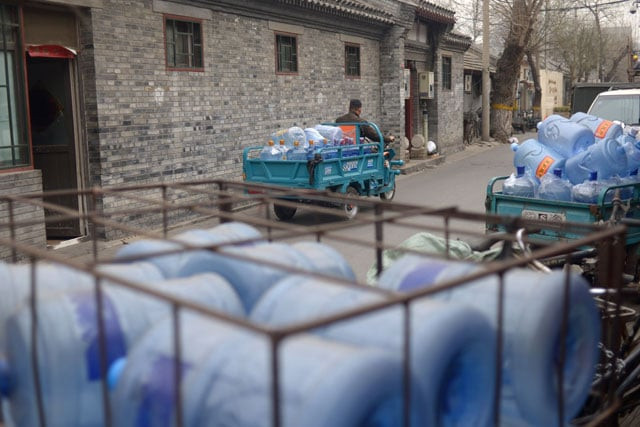The world's most expensive places to buy water
Some 650 million people do not have access to clean water

PHOTO: AFP
Water Day: 80 filtration plants near completion
Some 650 million people do not have access to clean water, and often have to make do with much less than the 50 liters per person per day the World Health Organization says is necessary for domestic use and to maintain health and hygiene, Water Aid said.
 PHOTO: AFP
PHOTO: AFPLack of access to an affordable, convenient source of clean water is one of the biggest barriers to escaping a life of poverty and disease, the charity said in its report "State of the World's Water 2016".
An estimated three out of four jobs globally are dependent on water, meaning that shortages and lack of access are likely to limit economic growth in the coming decades, according to a United Nations report, also released on Tuesday.
Below are some facts about the cost of water and access to it.
In Papua New Guinea's capital Port Moresby, it costs a poor person 54 percent of a day's earnings to buy the recommended minimum 50 litres of water from a delivery service.
In Madagascar's capital Antananarivo, the cost of buying 50 litres of water from a truck is 45 percent of a person's daily pay, while in Ghana's capital Accra it is 25 percent.
A drop in the ocean: World Water Day event highlights importance of conservation
A British person earning the minimum wage spends 0.1 percent of a day's pay on 50 litres of water from an official piped supply. Average use is about 150 litres per person, per day.
In Mozambique, families relying on black-market vendors will spend up to 100 times as much on water as those reached by government-subsidised tapstands.
 PHOTO: AFP
PHOTO: AFPPapua New Guinea, Equatorial Guinea and Angola have the lowest percentage of households with access to clean water in the world.
In 16 countries, some 40 percent or more of the population do not have access to clean water.
Cambodia, Mali, Laos and Ethiopia have made the greatest improvement in increasing access to water.
Despite much progress, inequalities persist even in nations that have made great strides, the poorest often paying the highest percentage of their income on water.



















COMMENTS
Comments are moderated and generally will be posted if they are on-topic and not abusive.
For more information, please see our Comments FAQ